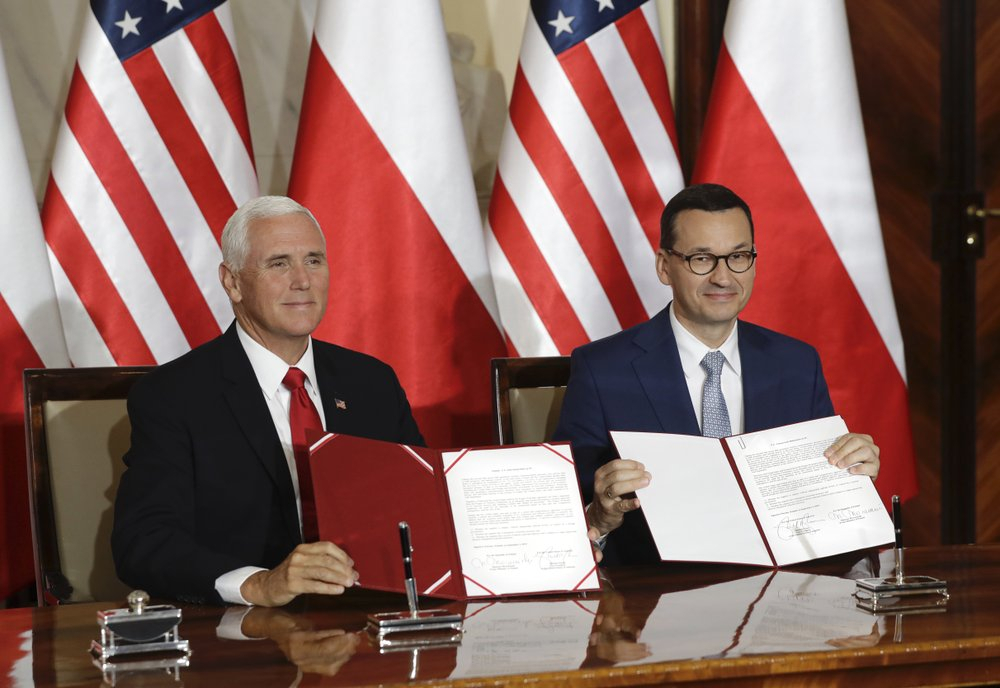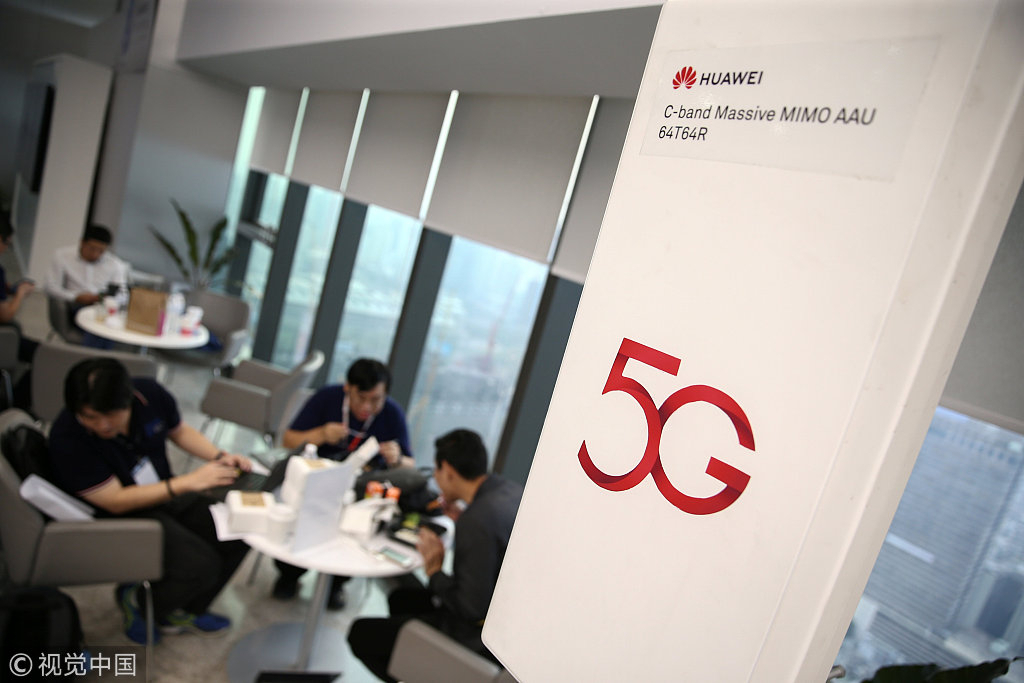

Editor's note: Li Zheng is an associate research fellow at the China Institutes of Contemporary International Relations, Institute of American Studies and the director of the American Security Center, Institute of American Studies. The article reflects the author's opinions, and not necessarily the views of CGTN.
On September 2, the U.S. and Polish governments signed an agreement on 5G network security. Under the agreement, Poland will strengthen its review of companies building 5G network infrastructure to determine whether suppliers of these companies are subject to foreign government control without independent judicial review. The international community generally believes that this agreement is mainly aimed at Chinese companies such as Huawei and ZTE.
The U.S.-Poland agreement is a new effort by the U.S. to promote an exclusive 5G alliance globally. In May 2019, the U.S. invited 32 countries to adopt non-binding Prague Proposals and proposed a series of discriminatory provisions for Chinese companies. The core of the clause is to require Western countries to review the government background of suppliers and construction contractors for 5G equipment.
The U.S. hopes to exclude Chinese companies from overseas markets by distorting the interpretation of Chinese laws. However, after Prague Proposals, most countries that signed the paper did not change their attitudes toward Chinese companies, which made Washington very disappointed.
The agreement between the U.S. and Poland is a poor version Prague Proposals to remind the international community of the existence of the proposal and to enhance its authority. U.S. Vice President Mike Pence said he believes the agreement will set an important example for other European countries, which is likely to fall short again.

U.S. Vice President Mike Pence (L) and Polish Prime Minister Mateusz Morawiecki signed an agreement to cooperate on new 5G technology in Warsaw, September 2. /AP Photo
First of all, Poland's relationship with the U.S. is too close. The political concept of the Polish Andrzej Duda government is very close to the Donald Trump administration, with both having some populist features. After Trump took office, the U.S.-Poland relationship was even closer than some traditional American allies. In July 2017, Trump's first stop on his second overseas visit was in Poland.
In contrast, China and Poland have limited common interests in business. This reality allows Poland to fully fall to the U.S. side in policy choices, without worrying about the impact of China-Poland relations. The situation in that of most European countries is different from that of Poland as these countries are even closer to China than the U.S. They will regard Poland's policy choices as a special case and not an important reference for their decision-making.
Second, Poland has adopted a very unfriendly policy toward Chinese telecommunications companies, and it is unlikely that Chinese companies will challenge this 5G security agreement. The authority and effectiveness of the rules need to be tested. If no company is subject to this agreement, the agreement itself will become useless.
Since Huawei was investigated by U.S. law enforcement agencies, Poland has become one of the most active countries to cooperate with the U.S. In January of this year, Polish law enforcement agencies arrested a Huawei employee in the name of espionage, which greatly affected the business confidence of Chinese companies in Poland. Poland’s discriminatory attitude towards Chinese companies is very different from that of other European countries.

A Huawei 5G device on display at an exhibition in Bangkok, Thailand, January 30, 2019. /VCG Photo
Finally, Poland's demand for 5G is different from that of other European countries. In recent years, the development of the Polish economy has benefited mainly from the natural gas trade between Russia and the European Union. Nearly half of Poland's top 10 companies are energy industries. The new round of information technology revolution has a limited role in promoting the Polish economy and is not the most urgent need for industrial development.
However, for other European countries, 5G is the basis for cultivating the development of new information industry. Limited supplier selection will delay the deployment of this technology and hurt the long-term economic prospects of these countries. This difference in national interests makes it likely that other European countries will not follow Poland's policy preferences.
Considering all of there, it can be concluded that Poland’s 5G agreement with U.S. will only be a special example for Poland itself, not an attractive one winning grounds among other European countries.
(If you want to contribute and have specific expertise, please contact us at opinions@cgtn.com)

Copyright © 2018 CGTN. Beijing ICP prepared NO.16065310-3
Copyright © 2018 CGTN. Beijing ICP prepared NO.16065310-3